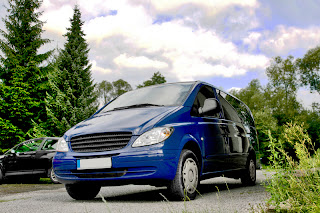Avoid Common Summer Hazards
While many people love the summer's pleasant weather conditions, it does come with its own set of challenges. The summer heat has the potential to cause discomfort and even present some dangers. First, it is important to have a functional air conditioning system, so that should be checked out. Another thing is to never leave pets or children in the car during hot weather because there is a danger of suffocation or even theft in some cases.Keep Your Speed Down
Sports car are supposed to be fast, but there is a time and place for that. It is okay to drive fast in a secure setting on a track, for example, but that type of driving is not appropriate for the streets. As a general rule, you will need to carefully observe the speed limits in your area to avoid potential accidents and speeding tickets. While it is always good driving practice to be aware of your surroundings, summer brings more people and animals walking about, making it vital to keep your speed down to avoid hitting pedestrians or animals that enter your path while driving.Understand How Insurance Rates Are Determined
While all insurance companies have slightly different ways of calculating insurance rates, there are only a couple of key factors that weigh heavily on their decisions. They take into consideration your age, other drivers on the policy, and even your credit report, but your driving history and your vehicle type are the main factors. In order to keep your car insurance rates low, the most important thing is to keep your driving record clean and clear of speeding tickets, accidents, and other traffic violations.Look for Discounts
There are a number of discounts available depending on the insurance company and what types of programs they offer. For example, some insurance companies will provide auto insurance discounts if you also receive home or life insurance from them. Another way to earn discounts is to have a monitoring system installed in your car, which will record information such as your speed and when you brake. Most insurance companies will provide you with a device and they will usually offer a monthly discount for being part of the program.While it is tempting to drive a sports car fast up California's Highway One, especially in the summer, it is best to observe speed limits and keep a clean driving record to keep your Los Angeles car insurance rates down. Give True Rate Insurance Agency a call at 855-735-1600 for a free car insurance quote.






